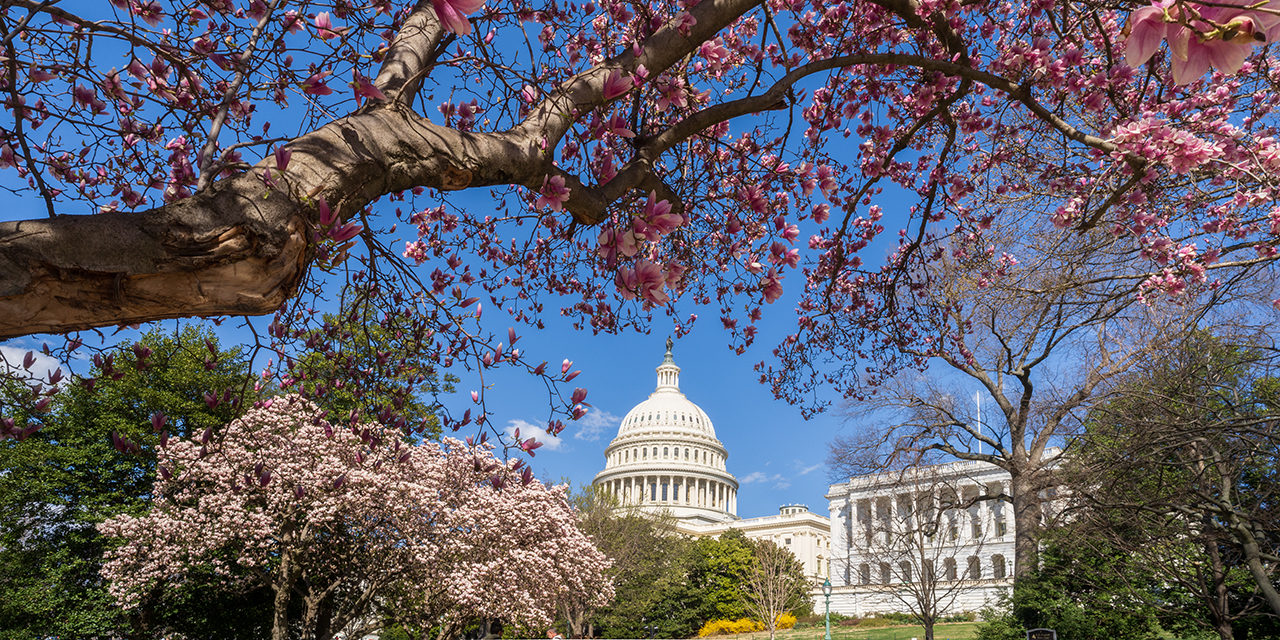
When I interviewed to work for then-Republican Minority Leader Mitch McConnell in 2021, he told me that we’d have one focus: protecting the filibuster. Thanks to a combination of McConnell’s shrewd tactics and then-Senator Kyrsten Sinema’s bravery, we succeeded. Unfortunately, recent efforts by liberal lawyers and judges to block immigration enforcement may undermine the political will to maintain this Senate tradition—unless the Supreme Court intervenes.
Many Democrats have long opposed the filibuster, and a growing number of Republicans have joined them. Most prominent among them is President Donald Trump, who in his first term asked McConnell to abolish the tactic dozens of times. Several House Republicans share the president’s view, believing that the filibuster impedes their ability to pass meaningful legislation. So far, their demands have fallen on deaf ears in the Republican Senate.
Finally, a reason to check your email.
Sign up for our free newsletter today.
But Republican senators now face a crisis that may change their minds: a dramatic attack by left-wing judges on the president’s agenda. In 2024, the Harvard Law Review published a study of nationwide injunctions—orders by district courts to halt executive actions. Courts issued 14 such injunctions against Joe Biden over his four years in office and 59 against Trump in his first presidency. In just the first two months of his second tenure, Trump has faced 78 injunctions—more than five times the number brought against Biden in four years.
The most notable of these have halted Trump’s ability to enact his signature campaign promise: immigration enforcement. These injunctions throw legal caution to the wind and are hard to disentangle from judges’ preferred policy outcomes.
The recent litigation over the Alien Enemies Act is the most high-profile example. Within weeks of the Supreme Court holding that claims challenging deportation under the AEA should be decided case-by-case in the jurisdiction of detention, the Court turned on a dime and issued a sweeping midnight order that seemed to provide class-based relief to aliens potentially subject to the AEA. It did so even after a Biden-appointed Fifth Circuit judge, Irma Ramirez, had dismissed the appeal as lacking jurisdiction. For all the Court’s professed commitment to regular order in federal courts, it was a staggering side-step of orthodox legal doctrine in favor of “doing justice.”
Even worse was the recent case in which a Boston district judge said that Trump couldn’t unilaterally end the parole program for Cubans, Nicaraguans, Haitians, and Venezuelans (CNHV). The Immigration and Nationality Act gives the attorney general authority to make “individualized” parole determinations, such as allowing a migrant into the country for an emergency medical procedure. Biden had abused this power, admitting four country-categories of aliens by executive fiat.
Upon taking office, Trump quickly revoked CNHV parole. Not so fast, said the Boston judge: the revocation of the categorical parole program must be individualized. Terminating the unlawful initiative, she argued, “undermines the rule of law.”
In fact, the plain text of our immigration statutes gives the president considerable tools with which to secure the border. But liberal lawyers, judges, and even presidents have deliberately violated these laws to serve their ideological goals. If that executive-and-judge-made problem can’t be fixed by another executive and different judges, then Congress may need to step in.
And that could pose a problem for fans of the filibuster in the Republican-led Senate. Senate Republicans are highly motivated to address immigration. Having negotiated the last two significant, bipartisan immigration deals in the Senate, I have the scars to prove it. Republican senators are unlikely to sit by while the courts prevent Trump from using his broad immigration and national-security powers to enact his core agenda. Expecting them to cater to the demands of seven Democratic senators in order to fix a problem created by Democrats may be a bridge too far.
The Supreme Court is a governing body, just like Congress and the executive. The timely resolution of the controversies surrounding Trump’s immigration agenda is as much a question of governance as of jurisprudence. If the Supreme Court dithers and allows the judiciary to play politics with immigration enforcement, it may well raise the political temperature until 50 senators see no choice but to abandon the filibuster.
Leader McConnell protected the filibuster in no small part to protect the Supreme Court. It would be a tragic irony if the Court’s indecision and timidity precipitated the filibuster’s demise.
Photo by J. David Ake/Getty Images
City Journal is a publication of the Manhattan Institute for Policy Research (MI), a leading free-market think tank. Are you interested in supporting the magazine? As a 501(c)(3) nonprofit, donations in support of MI and City Journal are fully tax-deductible as provided by law (EIN #13-2912529).
Source link















